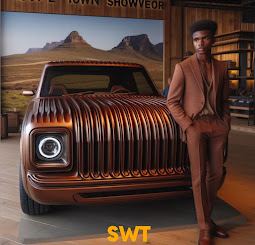Launch Studio is the future of Mentorship driving best practices in embracing the power of Ai as a tool to aid discovery to the next level.
The philosophy “Design Doing” is at the heart of what Launch studio is all about.
The founder Eric Stoddard introduces this timely and transformative approach to innovation —a mindset that emphasizes rapid execution using AI tools to move ideas from concept to reality faster than ever before. Unlike traditional design thinking, which often ends at ideation, "design doing" fuses AI technologies like ChatGPT, Midjourney, and Vizcom into the creative process, enabling professionals to prototype, visualize, and refine their concepts with unprecedented speed and precision. This philosophy is especially powerful for Africa’s growing automotive design ecosystem.
For African startups and institutions can now test bold ideas with minimal resources—exploring forms, functions, and narratives rooted in African culture without the high costs of physical modeling or global studio setups. AI becomes not a replacement for human creativity, but a catalyst that multiplies its impact.
Integrating this framework into design education across the African continent can empower a new generation of automotive thinkers. Imagine universities and maker spaces in Lagos, Nairobi, Harare to Kampala teaching students how to blend cultural research with AI-powered assisted sketching, visualization, and storytelling. With tools now accessible via a basic internet connection, students and professionals can produce work at a standard that resonates globally while staying grounded locally.
African startups can also benefit by embedding design doing into their business development strategies. Rapid iteration shortens time to market, and AI-aided research can guide market-fit decisions grounded in both user needs and cultural insight. The result is not just vehicles that look different, but vehicles that feel African—because their design DNA is drawn from local knowledge, yet refined through world-class processes.
Ultimately, design doing isn’t just a method—it’s a mindset that gives innovators permission to act boldly, test freely, and design fearlessly. With AI as an ally, the continent can shape a distinct, globally competitive design language—and lead the way in defining what the future of mobility looks like from an African perspective.
Courtesy
of
Eric Stoddard
https://launchstudio.design/
https://stoddarddesign.com/about
thhp://cardesign.academy





















